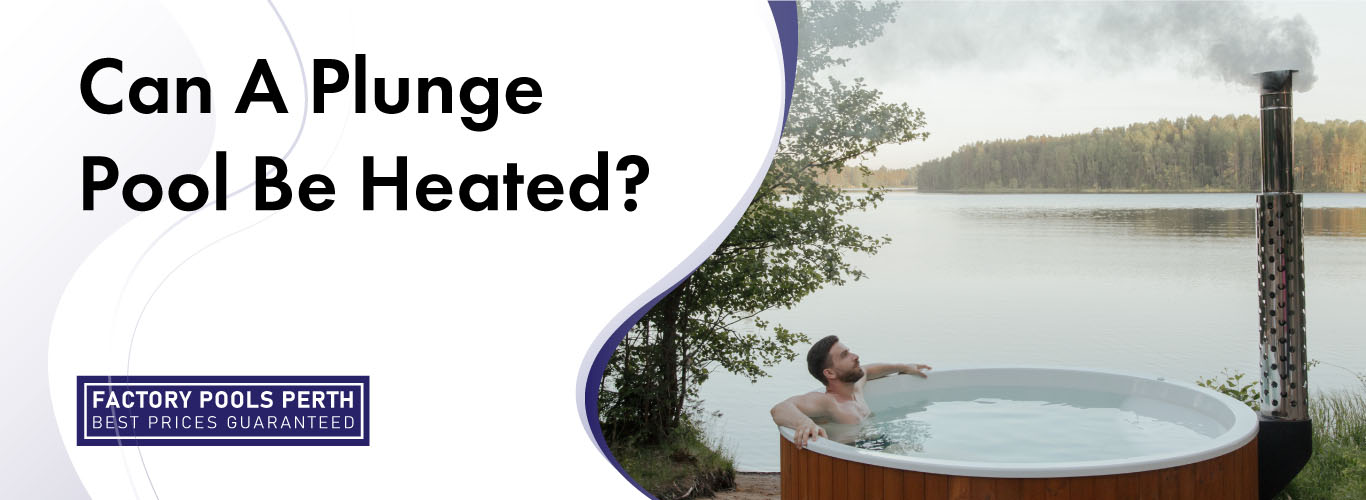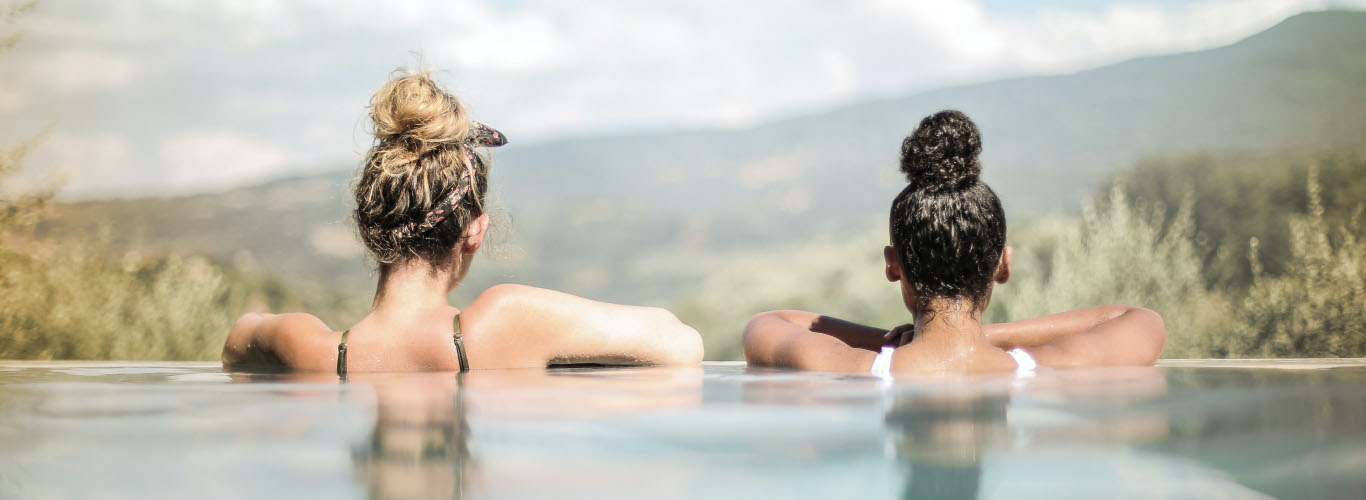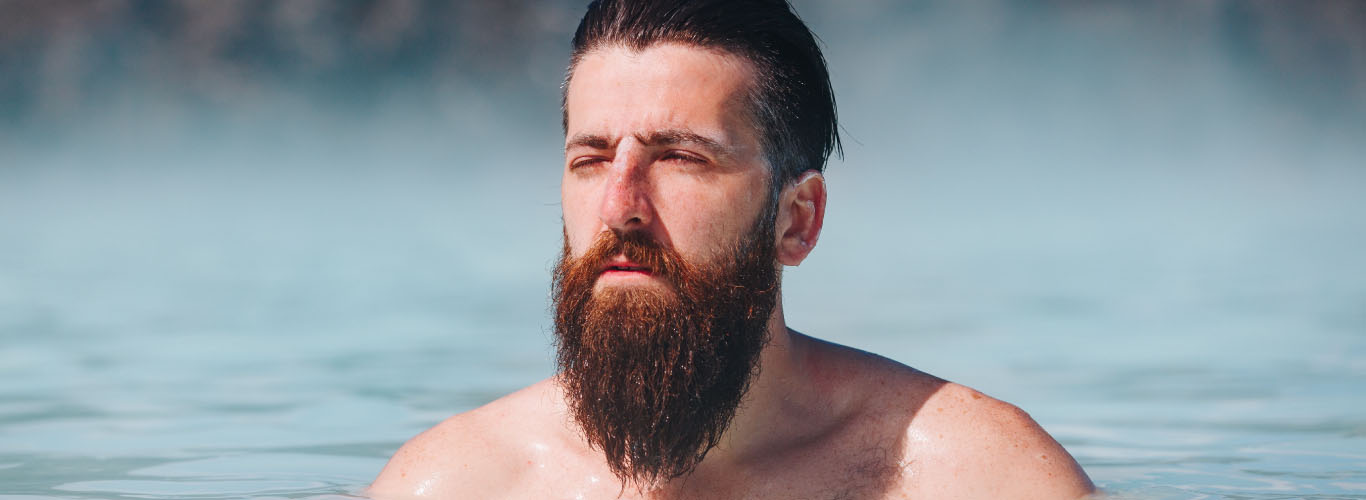Can A Plunge Pool Be Heated?
If you're leaning towards a plunge pool for your home, you are not alone! Plunge pools have become increasingly popular amongst homeowners looking for a new pool for their homes. Plunge pools have many benefits, and one of them is that heat exceptionally well due to their compact size. We've put together this post to share what you need to know about heating for your plunge pool.

Why is heating for your plunge pool is good idea?
When your plunge pool temperature is comfortable to swim in, you’ll likely spend more time in it and that is the single best way to get the most from your investment, by using it often. Plunge pools are purpose-built for submerging in which aids in relaxation. This is why you’ll notice that most plunge pool designs have generous seating, which makes the perfect spot to unwind for a few hours or catch up with those you care about most while the kids splash about. Warming the water has many benefits aside from improving comfortability, it can boost circulation, relieve pain and soothe achy muscles.
What heating is best for a plunge pool?
The best heating for a plunge pool will differ depending on who you are talking to. Some prefer certain types over others. Here are a couple of factors to think about to ensure you choose the right heating for you.
What will you likely use your plunge pool for the most?
If you are getting a plunge pool solely due to having limited space and the kids will mostly be using it, you may find heating to be of little benefit. If you want to be able to use your pool mostly for relaxing and on-demand, gas heating warms the water fast and might be a suitable solution, on the other hand, if you want your plunge pool mostly for swimming, a solar cover might be more appropriate.
How warm or cold is your climate?
Those in cooler parts of the country such as Victoria and Tasmania are unlikely to benefit from using a solar cover alone. It simply won’t warm the water up enough in the middle of winter to be able to have a leisurely swim. If you live in a warmer climate, you may still find heating beneficial in the cooler months, it allows you to warm the water when it’s too cold and enables you to swim year-round even if your cool months are brief.

Different types of plunge pool heating options:
Electric Pool Heating
Electric pool heating systems are favoured by many pool owners. They heat the pool fast and are typically very reliable. While they aren’t as eco-friendly as their solar counterparts, they heat more efficiently. Electric pool heating costs more to run than solar.
How do they work?
Electric heating systems work by harnessing heat from the air and transferring it to the pool via a heat exchanger. As they utilise warmth from the air rather than depending on the sun, they are more effective and can work at night time also.
Solar Heating System
Solar Heating Systems are very popular and for good reason. Rather than running up your energy bill by chewing electricity, it sources natural energy from the sun to power the heating system. Solar heating systems are economical to run and will save you significant money compared to the other heating systems available for pools.
How do they work?
Using a minuscule amount of energy, a solar heat pump runs the solar system to heat the pool. Black capillary tubes are installed on your roof and water is pumped up to these, and as it travels through, it heats the water. This now warmed water is sent to your pool, and the process continues maintaining a stable temperature in the pool. While it has great pros, it does have some cons, with the major one being that it doesn’t work as well when there’s no sun around. So if you have a lot of days without much sun, your solar pool heating system is unlikely to warm your pool to the temperature that you’d like it to.
Gas Heating System
Gas pool heating is the most expensive of all however, what it lacks in the money-saving department it makes up for in effectiveness. Unlike solar and electric heating systems, gas doesn’t rely on the air or sun to function. It uses its own independent energy source. This means they can heat the pool much faster and, they work no matter the season or weather. The biggest downfall to gas is its cost to run.
How do they work?
Gas heating systems work by burning gas in a combustion chamber that contains copper coils, the water passes through these and heats it as it goes. This warmed water is then sent back to the pool.
Solar Pool Covers
If pool heating is out of the budget right now, solar covers are a great way to raise the temperature of your pool. For the best heating results, we recommend pairing your heating system with a cover. A cover helps to retain the warmth in your pool by preventing it from escaping. This means your pool stays warmer for longer and you won’t have to heat it for as long.
How do they work?
Solar covers have small bubbles on their surface that resemble bubble wrapping. These act like magnifying glasses to increase the warmth that enters your pool and then prevents it from escaping.

Choosing the right heating system for your pool
Final thoughts on deciding which heating is best for your plunge pool:
- How much you want to use your pool during the year
- Your climate
- How much sun your pool gets daily
- If you want to use your plunge most mostly for swimming or relaxing
Swimming in warm water can extend your swimming season and improve your general health and wellbeing. Heating is now more affordable than ever with options to suit every budget.
Our team here at Factory Pools Perth specialise in fibreglass pools and spas and know everything there is to know about swimming pools and their extras such as heating. If you have any questions about heating for your plunge pool, get in touch and our friendly team will be happy to answer your questions.

